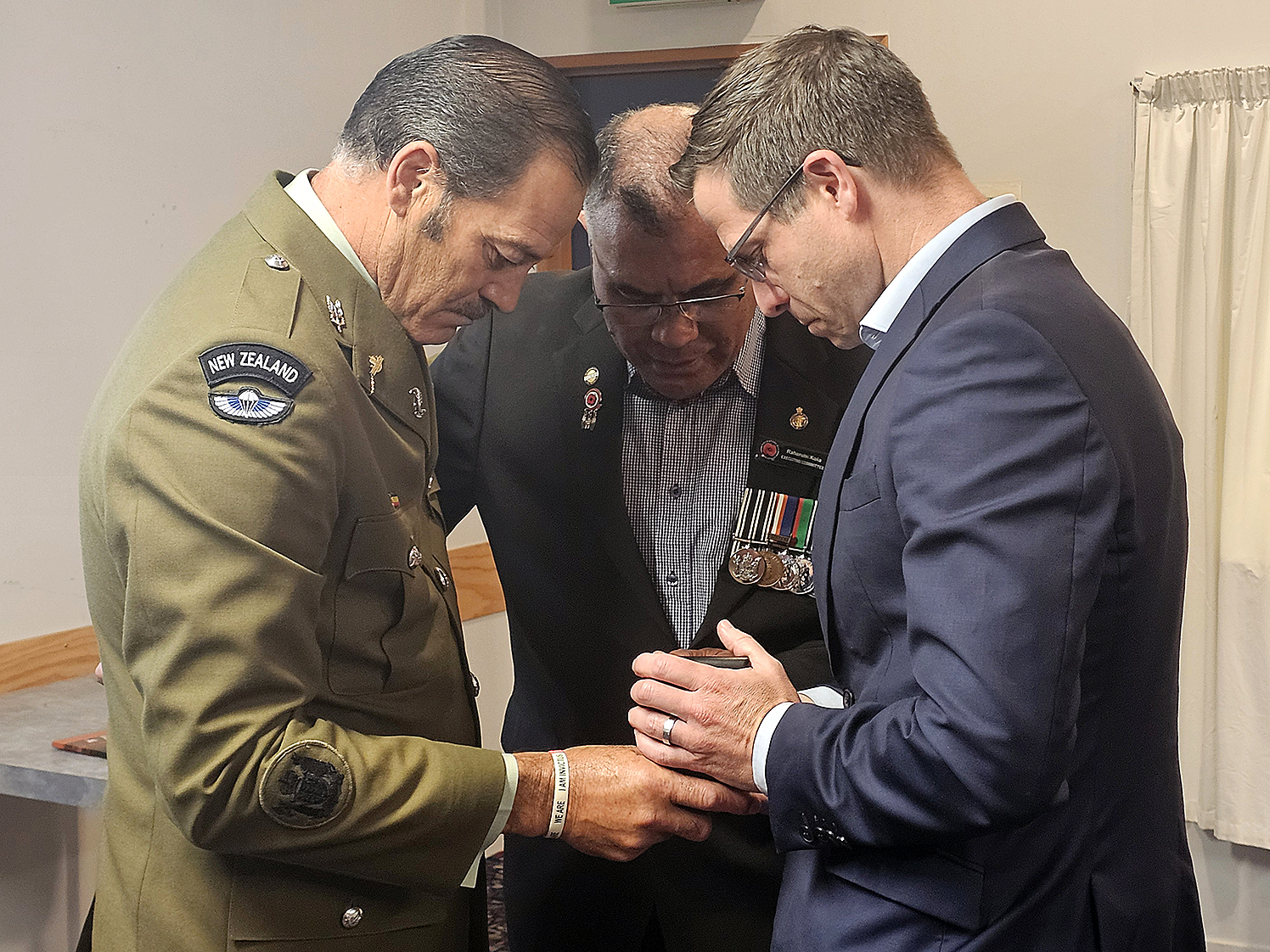Returning VC 'helps younger veterans'

Paul Charman
Willie Apiata’s decision to hand back his famous Victoria Cross medal highlights the raw deal younger military veterans are getting, says veterans’ campaigner Gavin Nicol.
Having worked with veterans of many wars he 100% backs Mr Apiata’s decision to hand his VC to Veterans Minister Chris Penk.
“Willie gave back his VC to help his comrades. In support, I’m also giving back my medals until we have a fairer system. The point Willie made at the Whakatāne RSA summed it all up well,” Mr Nicol said.
“At present, only some veterans are qualifying for adequate entitlements such as pensions, following injuries and illness sustained during service.
“Other veterans and their families are grossly under-compensated. Being short-changed by their own country, many get consigned to lives of poverty and hardship.
“Willie campaigned for more than five years to change the Veterans Support Act 2014 to remove these anomalies, but nobody listened; handing his VC back to Mr Penk forces us to sit up and take notice.
“Currently only service personnel injured while deployed overseas during a war or emergency operation qualify, unless they served before ACC was founded in 1974.
“But those pushed into the ACC system, which came in after 1974, have major problems. The Government makes ACC as hard as possible to access and it is administered by people who don’t understand military service.
“If an injured service person opts for a one-off payment after being disabled, they will no longer qualify for a pension. Not only that, but they also have to pay tax on whatever they receive.
“I worked with a disabled veteran who received a one-off payment of about $190,000. By the time Inland Revenue and WINZ had taken their cuts out, he had $89,000 left.”

Mr Nicol pointed out military service within New Zealand could be every bit as dangerous as deployment overseas.
Between 2016 and 2020, 32 New Zealand Army personnel suffered serious injuries in training accidents, and from 2000 to 2019, 147 service personnel died while on training or exercise.
“So many people get injured before they even go overseas. The armed services push things to the limit during training because it is the only way to prepare for battle conditions. Injuries – both mental and physical – are common.”
Mr Nicol is a Vietnam veteran who began campaigning for veterans’ rights after discovering that he had been poisoned by Agent Orange. He was badly injured in a fall from an army helicopter and diagnosed with post-traumatic stress syndrome after witnessing atrocities committed by South Vietnamese police.
“Many in the civilian world see the miliary as an easy life. It isn’t.
“It’s a life of devotion and commitment in which you swear an oath to serve the King or Queen and to your country, come what may. What’s more, you have a bond with one another because if anyone fails to do their job, they could cause the loss of three or four of their comrades. We depend on one another all the time.”
Despite all this, service personnel remained ready to put themselves in harm’s way for their country.
“But they must believe that it will work both ways if things go wrong.
“I have been serving veterans since the early 1980s. Having suffered from post-traumatic stress disorder, I learned that I could help others who had this condition, no matter what war they had been in.
“I have travelled around the North Island doing pensions especially on the East Coast, Auckland and North Auckland regions. I have met many New Zealand veterans from many wars. I have made many trips to the Cook Islands to look after veterans there and done similar work in Samoa. What I have seen makes me determined to support Willie.
“Something must be explained to servicepeople and Parliamentarians: When you serve, you give up your rights as a citizen of New Zealand. But when you come home you expect Parliament to protect you and your whānau.
“This unwritten law is not being adhered to; Parliament has not been holding up its side of the bargain. The system just isn’t working.
“We must take a closer look at this with the aim of better supporting our younger veterans.”